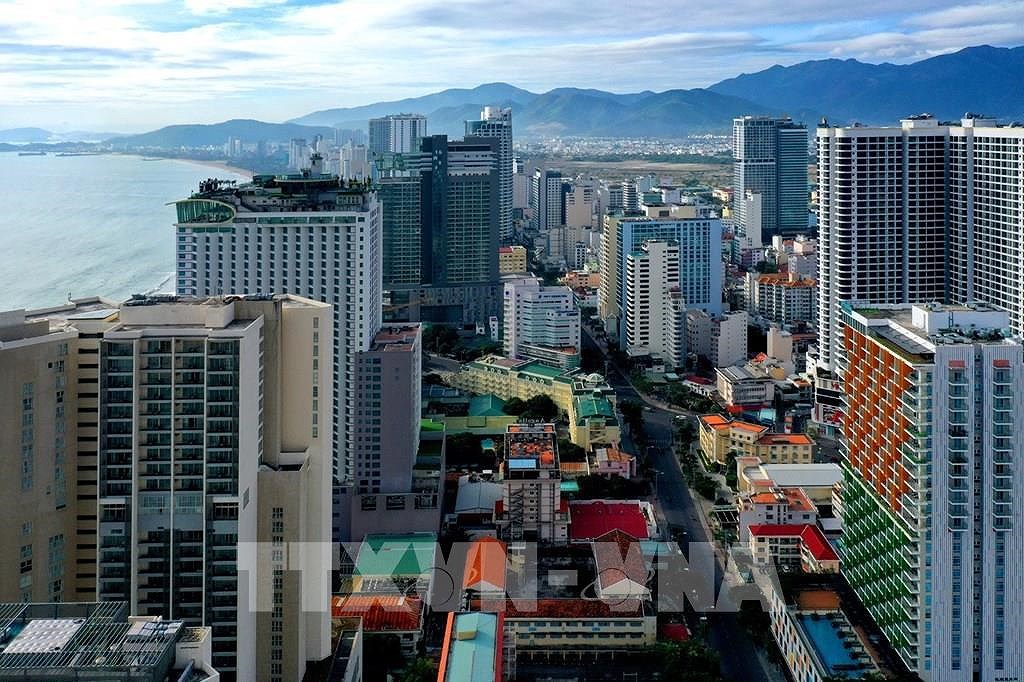 A corner of Nha Trang city in Khanh Hoa province (Photo: VNA)
A corner of Nha Trang city in Khanh Hoa province (Photo: VNA)
Hanoi (VNA) – The World
Bank (WB)'s latest update on East Asia and Pacific economies has highlighted
the uneven recovery in the regional economies' growth, as countries are
recovering from the impact of the COVID-19 pandemic.
According to the
report, the regional economies began to bounce back in the second
half of 2020. However, only Vietnam and China have followed a V-shape recovery
path with output surpassing pre-COVID-19 levels.
Vietnam and China are expected to enjoy strong growth in 2021, whereas other
economies in the region will grow more gradually, the bank said.
Specifically, China and Vietnam's economies are expected to grow by 8.1 percent and 6.6 percent this year, respectively, while the rest of the region is forecast to grow by only 4.4 percent.
Most of the other countries have not seen a full-fledged recovery
in terms of either output or growth momentum. Economic performance across countries
continues to depend on the efficiency with which the COVID-19 pandemic is contained, the
ability to take advantage of the revival in international goods trade, and the
capacity of governments to provide fiscal and monetary support.
Many economies, especially in the Pacific islands are not expected
to reach pre-COVID-19 levels of output until 2022 or later, the bank said.
Countries that cannot fully restore
their export sectors, or that rely too heavily on tourism, are going through a
tough time to achieve modest growth by 2021, the bank said.
In Thailand and in the Philippines, output is
projected to remain below pre-pandemic levels until 2022. Among smaller
countries, the recovery is expected to be particularly protracted in tourism dependent
Island economies, with growth expected to be negative in about half of the
countries.
The report noted that public
debt in the region increased on average by more than 7 percent of GDP, as governments
committed to fiscal support equal to nearly 10 percent of GDP in 2020.
Growing public debt and widening fiscal deficits
will constrain further government spending in the near term.
While rising public debt and fiscal deficits are
likely to limit government spending in the coming time, the WB said fiscal
policy should play three roles at the same time, including economic relief,
recovery assurance and growth promotion.
The WB also stressed that the global tourism industry is not projected to return to pre-pandemic levels until 2023, thereby delaying economic recovery in economies heavily
depending on the industry./.
VNA